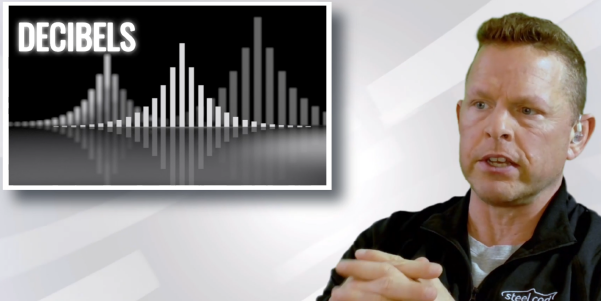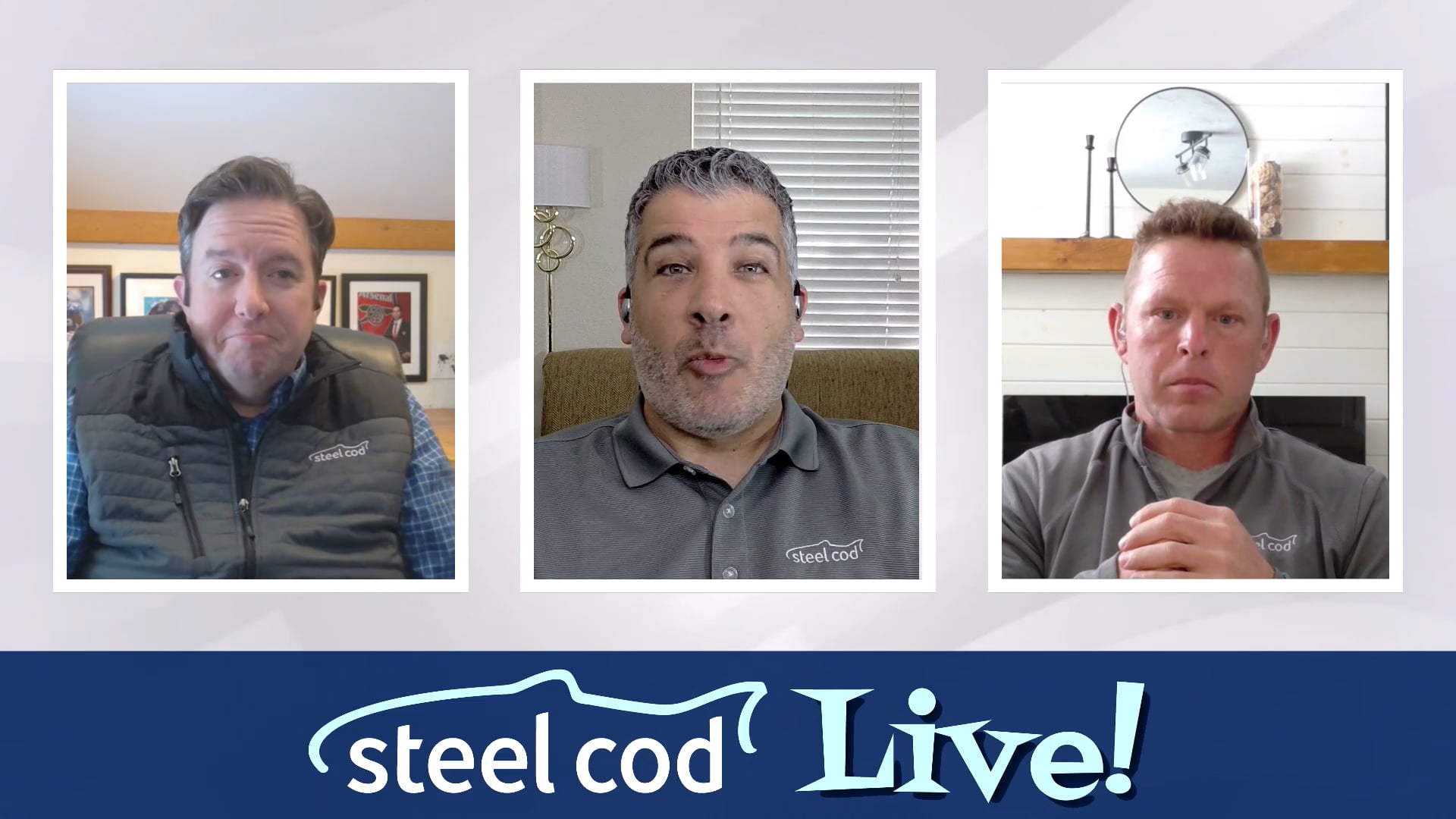The Sound of Silence
Do Dishwasher Sound Ratings Really Matter?
The Sound of Silence
Customers chase the lowest decibel number, but do they really know what it means? In this episode, we expose the myths behind sound ratings, what actually impacts noise levels, and how to shift the focus to what truly matters.
The Sound of Silence
What are the tradeoffs between noise and speed when it comes to dishwashers? Is noise-cancelling technology the next step in making your kitchen even quieter? Jon, Anthony and Tom discuss that and more on this week's Steel Cod Live!
Documentation
Recap
Key Questions & Answers
Do certain cycles naturally produce more noise, even on a quiet-rated dishwasher?
Yes. Some cycles are inherently louder due to increased water movement or mechanical action:
| Cycle | Notes |
|---|---|
| Drain & Water Intake | The loudest part of the cycle |
| Heavy/Pots & Pans Cycle | Uses higher spray pressure, generating more noise |
| Hard Food Disposer Models | Some U.S. dishwashers have built-in grinders, which are noisier than European-style filtration systems |
| Drying Phase (Fan/Heated Dry) | Fan-assisted drying produces noticeable sound |
The quietest cycles? Auto, Delicate, and Energy-Saving modes, which use lower water pressure and minimal pump adjustments.
How do I handle a customer who refuses to consider anything above a certain decibel level?
Help them refocus on real-world impact by asking:
"How loud is your current dishwasher?" -- Most don’t actually know.
"Do you run it at night or during gatherings?" -- If not, small dB differences won’t matter.
"Is cleaning & drying performance more important than sound?" -- Redirect to key performance features.
Explain diminishing returns: below 44 dB, differences are almost imperceptible—but performance trade-offs (like longer cycles or weaker drying) can be significant.
What’s the best analogy to explain dishwasher decibel levels?
A 6 dB difference sounds big on paper, but in reality, it’s minor. Try this:
| Decibel range | Description | Level |
|---|---|---|
| 38-44 dB | Quiet library or light rainfall | Barely noticeable |
| 46-50 dB | Conversation in another room | Background noise, not disruptive |
| 52+ dB | Running shower or low TV volume | clearly audible |
A great line: “Even a 46 dB model won’t make you turn up your TV while watching a show.”
Do dishwashers with stainless steel tubs run quieter than plastic ones?
Yes, but insulation matters more.
- Stainless steel tubs absorb sound better, as they don’t amplify water splashing.
- Plastic tubs reflect sound, making spray noises slightly more noticeable.
However, a well-insulated plastic model can be quieter than a poorly insulated stainless one.
How do I explain sound improvements to customers upgrading from a decades-old dishwasher?
Rather than focusing on dB numbers, highlight tangible improvements:
"Your new dishwasher won’t interrupt conversations anymore." -- Older models ran at 60+ dB—modern ones are much quieter.
"No more loud grinding noises." -- Old models used loud food disposers; today’s models use quieter filtration.
"Even budget-friendly models today are quieter than high-end ones from 15 years ago."
"Some models are so quiet they have lights to indicate they’re running."
If a customer insists on “the quietest model,” how do I guide them to consider other factors?
Ask questions to redirect their focus:
"Is this for an open-concept space or a separate kitchen?" -- Open layouts benefit from ultra-quiet models.
"Do you run your dishwasher at night?" -- If not, minor noise differences won’t matter.
"Would you trade better drying or faster cycles for a slightly lower dB?" -- Many ultra-quiet models have longer cycles.
"Is your current dishwasher unbearable?" -- Any new model will be dramatically quieter.
Have we reached the lowest practical dB ratings, or will dishwashers get quieter?
We’re already at the limit.
- Below 38 dB, background noise (like HVAC hum) makes further reductions meaningless.
- Future innovations will focus on better drying, water efficiency, and smart features rather than lowering noise further.
- Some ultra-quiet models are now adding soft chimes or projected timers because users can’t tell they’re running.
How does sound insulation differ between premium and budget dishwashers?
Sound insulation is one of the biggest factors in price differences:
- Premium models use multi-layer insulation (dense foam, sound-absorbing pads, and enclosed bases) for maximum quiet.
- Mid-range models have moderate insulation, but may use cheaper materials.
- Budget models often have minimal insulation, making pump and spray sounds more noticeable.
Do panel-ready dishwashers actually reduce sound levels?
Slightly—but not as much as people assume.
- A custom panel adds an extra insulation layer, but the real difference comes from installation quality.
- If installed snugly, it helps dampen external motor noise—but it won’t affect internal water spray or drying sounds.
Are European-style dishwashers quieter than American models?
Generally, yes, but with trade-offs:
- European models (Bosch, Miele) focus on ultra-quiet operation (38-44 dB) and condensation drying (which avoids loud heating elements).
- American models (KitchenAid, GE) prioritize faster cycles & heated drying—but with slightly higher dB ratings (44-48 dB).
European dishwashers tend to be quieter but slower, while American models are faster but slightly noisier.

